Be Heard – Your Voice Matters!
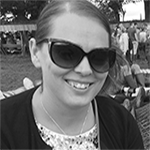
Aoife Dare is a youth worker with the Irish Refugee Council. European Youth Migration Forum (EYMF) is a group of young people from all over the world who are living in Ireland. They are passionate about the welfare of children and young people in migration. In this blog, Aoife reflects on their shared journey to an Erasmus+ KA3 project, including the challenges and rewards they encountered along the way.
My journey with Erasmus+ started in May 2016 when I was doing a Postgraduate Diploma in Youth Work at University College Cork. As part of that course, I completed a two-day workshop on project planning. This was my first real introduction to Erasmus+ in the context of youth work. Around the same time, I started working part-time with the Irish Refugee Council (IRC) in Dublin as a youth worker. My role was facilitating and working with the IRC’s youth group – the European Youth in Migration Forum. At that time, EYMF’s main activity was a weekly youth café for young people in the protection system. EYMF’s core members were keen to get involved in a new project so we started investigating whether it would be possible for us to access Erasmus+ funding.
From Joy to Fear and back again: Our Erasmus+ journey
After meeting with Léargas during the summer of 2016, we decided to do a KA3 'Structured Dialogue' project, and on 04 October, after a frantic race to the meet the deadline, we submitted our very first Erasmus+ funding proposal. The initial joy of hearing that we had been successful was quickly replaced with The Fear of actually having to manage and implement our project! However, with the help and support of the wonderful team at Léargas, we started our KA3 project ‘Be Heard: Your Voice Matters’ in February 2017 and we haven’t looked back since. We decided to do a KA3 project for several reasons. Firstly, it was one of the only ways that we could access Erasmus+ funding without needing to travel or engage partners. This was important to us because young people seeking asylum do not have travel documents and cannot leave the country. Secondly, we wanted to provide a space for young people aged 18-25 living in Direct Provision to be heard, as they are so often overlooked and under-represented. We were keen to hear what these young people had to say about their lives as asylum seekers in Ireland, and we wanted to ensure that the people with power listened to these experiences and considered them when forming new policy goals.
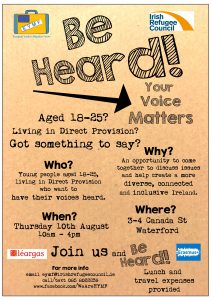
Solidarity and Working Together
During the Spring and Summer of 2017, we held five youth consultations with young people living in Direct Provision in different locations around Ireland: Dublin, Waterford, Cork, Tralee and Limerick. These workshops were a mixture of laughter, passion, anger and despair as the young people shared experiences and compared notes on the range of issues and challenges they face. We laughed at the stories of terrible food and awkward situations with roommates, and we despaired at the length of time in the system, the feelings of hopelessness and the lack of opportunities. Most of all though, we listened in solidarity and worked together to come up with potential solutions to the biggest issues. In September, we brought these issues to the attention of policy makers in our final workshop. This provided EYMF members with an important opportunity to highlight the issues facing young people living in Direct Provision and engage with policy makers in a constructive way.
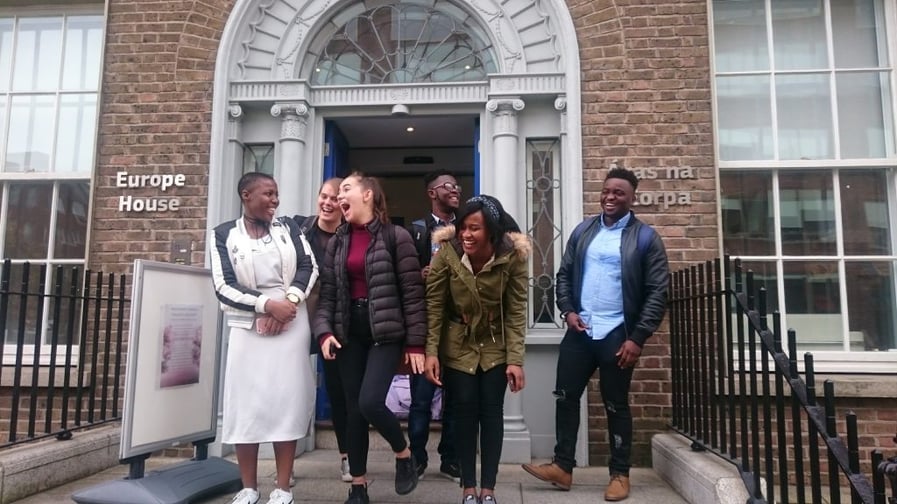
Challenges and Opportunities
Managing an Erasmus+ project is an exciting, rewarding and inspiring experience but it is not without its challenges. One of the biggest issues we faced was logistics, and anyone interested in doing a project with young people seeking asylum in Ireland should spend some time working this out. It’s important to remember that young people living in Direct Provision cannot necessarily afford to pay their travel costs upfront. This is one of the reasons why we brought our workshops to them, rather than asking them to travel to Dublin. Another challenge was actually recruiting young people to participate in the workshops. Young people living in DP do not necessarily have opportunities to engage in youth projects or workshops; they may never have heard of Erasmus+; they may be wary of getting involved, and they may not be used to actively participating. Thus, it is important to link in with local organisations that are already working in the area and have the connections with young people, so that they can help spread the word about your project and speak directly to potential participants.
An unexpected and fantastic outcome of our project was becoming aware of the many opportunities there are to engage with broader debates on youth work with young refugees. For example, through the Léargas Youth Training Opportunities page I learned of a conference in Amman, Jordan on the challenges and opportunities of youth work with young refugees. I was delighted to be selected to attend. This was a jam-packed three-day event, during which I learned about the situation of refugees in Jordan and had the opportunity to meet many different people working with young refugees all over Europe and Jordan (as well as float in the Dead Sea on our afternoon off!).
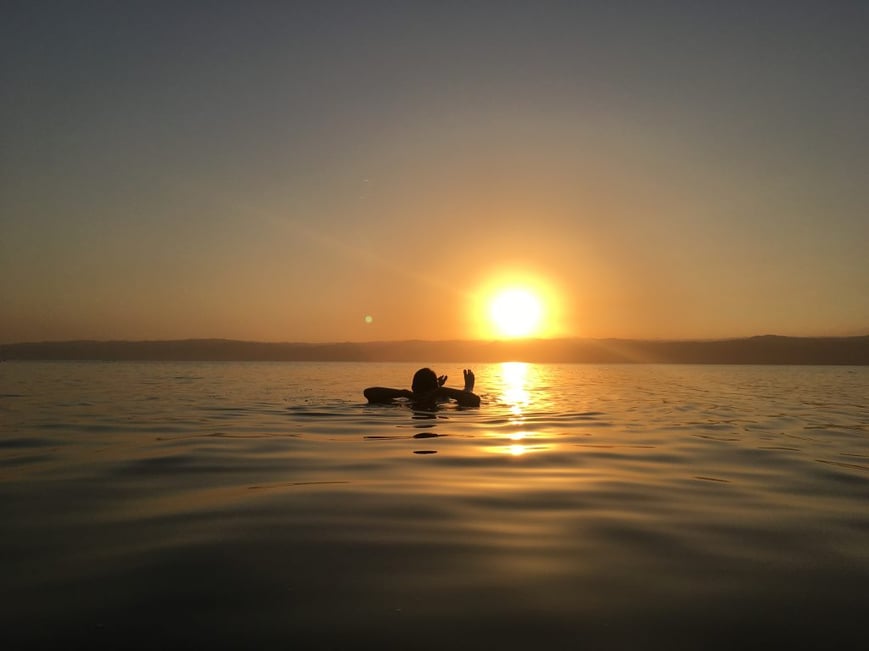
I enjoyed the conference, particularly the time spent talking to other participants sharing our experiences and practice. As this was a busy conference we did not have a lot of time to share and reflect. However, we did have a really interesting discussion on ‘empowerment’ in a breakaway session. The outcome of this was the realisation that real empowerment takes a very long time and that to achieve this, we need to work with young people to plan and build our methodology before we do anything else: including applying for funding. We need to find out what other projects or programmes exist already before we start something new, and we need to be able to ensure responsibility and accountability from everyone. This experience has had a big impact on my own work. I am now trying not to rush into applying for funding without first taking the time to figure out what the young people really want to do. This can only be meaningfully achieved with the active participation, input, involvement and direction of the young people themselves.
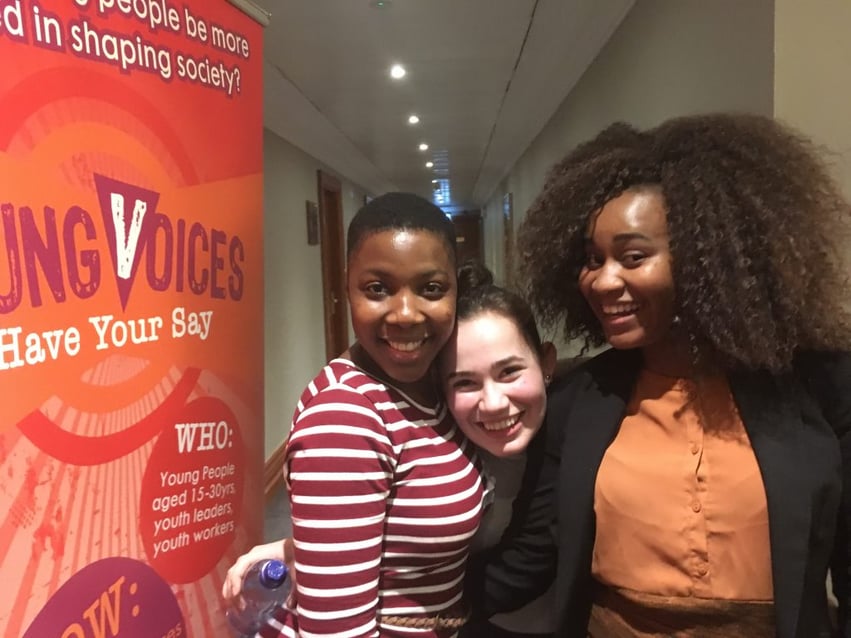
We wrapped up our project in November 2017, with another unexpected opportunity to speak about it, and our work, at the 'Irish Stand' fundraiser in Dublin. This was an important occasion for the young people involved in the project to share their experiences with a national audience. In December, I took part in the panel discussion at the Léargas Forum 2017 and spoke about my own experience of implementing an Erasmus+ project to an audience of people working in the youth and education sector.
Planning for the Future
We are currently focusing on creating a report to document the challenges facing young people in Direct Provision and offer recommendations to policy makers, NGOs and youth work organisations. We are also taking this time to plan future projects. I met a number of potential European partners at the conference in Jordan and while we haven’t made any decisions yet, I’m interested in exploring the idea, with EYMF, of an Erasmus+ KA2 Transnational Youth Initiative. As a result of our consultation in Kerry, I have also started working with a group of young women living in Direct Provision in Killarney. While we are not quite ready to apply for Erasmus+ funding, we are working on some exciting new project ideas for 2018! We would like to take this opportunity to thank Léargas for all their help and support, as well as these organisations that helped us spread the word about our consultations: NASC Ireland in Cork, ISU in Waterford, TIRC in Tralee and Doras Luimní in Limerick. Thank you as well to all the young people who came to our consultations – your voices matter and it’s time for you to Be Heard!
Images courtesy of Aoife Dare. To learn about future Youth Training Opportunities, check our Training Opportunties page or sign up to our Youth newsletter. We welcome your contributions to 'Insights' at comms@leargas.ie.
